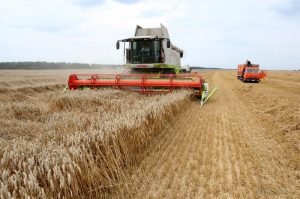
The Ukrainian national football team has beaten Switzerland with a score of 2:1 in the first match of group four of the elite division A of the UEFA Nations League.
In the 14th minute, Andriy Yarmolenko opened the scoring in the match in Lviv. In the 41st minute, Haris Seferovic equalized the score. In the 68th minute, Oleksandr Zinchenko brought victory to Ukraine.
In another match of this group, Germany and Spain tied the game with 1:1 score.

he seaports of Ukraine in January-August 2020, according to recent data, handled more than 105.77 million tonnes of cargo, which is 5% more compared to the same period in 2019.
According to information on the website of the Ukrainian Sea Ports Authority, transshipment of exported cargo increased to 80.8 million tonnes (5.4% more), imported cargo to 16.1 million tonnes (0.9% more), transit to 7.3 million tonnes (4.6% more), cabotage goods to 1.6 million tonnes (30.8% more).
Grain became the leader in terms of transshipment volumes for the specified period, the transshipment of which amounted to 30.7 million tonnes.
Ore ranked second with 30.2 million tonnes, which is 27.5% more than the same indicator of the previous year.
Pig iron transshipment increased by 49.8%, to 2.3 million tonnes, oil transshipment increased by 4.1%, to 4 million tonnes, crude oil by 2.5 times with a processing volume of 1.4 million tonnes over the specified period.
Transshipment of containers reached 690,600 TEU and exceeded the last year’s figure by 9.2%.
National bank of Ukraine’s official rates as of 03/09/20

Source: National Bank of Ukraine

The National Bank of Ukraine (NBU) maintains its forecast for the grain harvest in 2020 at 72 million tonnes, Deputy Governor of the NBU Dmytro Sologub has said.
“The harvest is basically at the level of last year, the area planted with early crops was slightly less than last year, because more corn was sown, but the yield is almost in line with last year … We keep the estimate for this year’s harvest, respectively, at the level of 72 million tonnes,” he said during a press briefing of the National Bank.
He noted that the NBU also does not see a significant decrease in grain exports in comparison with the forecast.

President of Ukraine Volodymyr Zelensky has set the government to draft and submit to the Verkhovna Rada bills aimed at developing the IT industry in Ukraine.
According to the presidential website, Zelensky signed relevant decree No. 371/2020 on September 3, 2020.
According to the document, the Cabinet of Ministers, with the involvement of representatives of government agencies, business associations, independent experts and MPs, should draft and submit to the parliament bills aimed at stimulating the implementation of economic activities in the field of information technologies within three months.
In particular, at the legislative level, the temporal features of the taxation of salaries of IT specialists who are in labour relations with IT companies should be determined in order to establish an effective level of the tax burden and promote the shadowing of the salary sphere and increase the competitiveness of internal IT companies in the external market.
The president also insists on improving the procedure for carrying out procedural actions in the course of criminal proceedings in order to prevent unjustified interference in the activities of IT companies.
In addition, according to the decree, the government should improve the procedures for obtaining an immigration permit by IT specialists who are foreigners or stateless persons and immigrating to Ukraine and obtaining a work permit for foreigners and stateless persons by an employer (IT company).
The Cabinet of Ministers should also contribute to the development of education in the field of information technology and the integration of the best world practices into the system of training IT specialists to increase their competitiveness in the labour market.
According to the document, the improvement of vocational training, retraining and advanced training of the unemployed should be ensured be involving educational institutions that train specialists in the IT field.
The decree comes into force on the day of its publication.